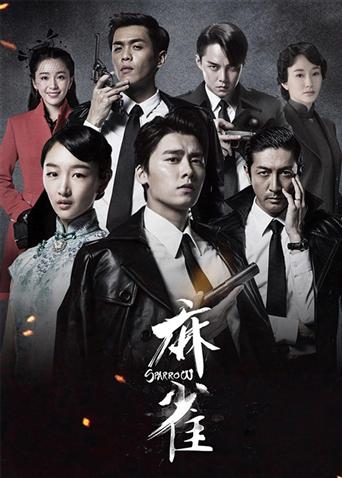黄飞鸿的侠义事迹曾多次被搬上银幕,本片由资深导演王风执导,史仲田饰黄飞鸿、石坚饰申九蚣,配搭新鲜。故事讲述,黄飞鸿(史仲田)是清末民初名震岭南的着名拳师,平素以行侠仗义、排解纠纷为己任;除了设馆授徒之外,并医治跌打济世,在武林中极有声望。某天正值黄飞鸿宝芝林药局新张吉庆,德记?栏主人周立德(井淼)前来道贺,并希望黄飞鸿能够帮助他在来年观音诞时抢得丁财炮……

黄飞鸿的侠义事迹曾多次被搬上银幕,本片由资深导演王风执导,史仲田饰黄飞鸿、石坚饰申九蚣,配搭新鲜。故事讲述,黄飞鸿(史仲田)是清末民初名震岭南的着名拳师,平素以行侠仗义、排解纠纷为己任;除了设馆授徒之外,并医治跌打济世,在武林中极有声望。某天正值黄飞鸿宝芝林药局新张吉庆,德记?栏主人周立德(井淼)前来道贺,并希望黄飞鸿能够帮助他在来年观音诞时抢得丁财炮……

回复 :琳娜·海蒂、萨姆·沃辛顿、迪恩·斯科特·瓦兹奎兹(Dean Scott Vasquez)、芭芭拉·赫希([黑天鹅])将出演独立制片新片[玫瑰舞后之月](Gypsy Moon,暂译)。该片由吉吉·加斯顿(Gigi Gaston)自编自导,拉拉·安东尼(La La Anthony)、凯姆·吉甘戴([暮光之城])、马丁·山米尔(Martin Sensmeier)、艾玛·霍泽尔一同出演。海蒂饰演的女主角,是一个被前男友(沃辛顿饰)威胁性命的滑稽舞表演者。在最后一场舞蹈表演的前夜,她必须跑去救一个邻居家的男孩(瓦兹奎兹饰)。而对这个男孩的感情,给了她在生命中第二次感受到爱的机会。
回复 :昭和二十八年(1953),战后的日本山河凋敝,百业待兴。佐贺煤矿区的底层百姓生活困苦,安本家的顶梁柱父亲不幸去世,留下两对儿女喜一(长门裕之 饰)、良子(松尾嘉代 饰)、高一(冲村武 饰)、末子(前田晓子 饰)无人照看。20岁的喜一外出做工,但稀薄的工资不足以承担一家人的日常开销。为了生存,喜一将高一和末子托付给好心的边见叔叔(殿山泰司 饰)抚养,自己则和妹妹良子前往长崎打工。四兄妹就此分离,而煤矿上的生活也越来越艰难……本片根据10岁女童安本末子的日记改编,并荣获1960年蓝丝带最佳男演员和最佳男配角奖。
回复 :Middle class student Bob Letellier enters a new world when he meets Alain, a free-thinking rebel who, along with his group of young Parisians, has opted for a life of instant gratification instead of work and commitment. At a party, Bob meets a young woman, Mic, who appears to be just as carefree and cynical as Alain. Mic's only dream is to own a luxury car, and with Bob's help, she manages to find the money to but it. Mic's friend Clo discovers she is pregnant and, not knowing who the father is, she asks Bob to marry her. When they next meet at a party, Bob and Mic deny that they have any feelings for one another - a declaration that soon leads to tragedy...Marcel Carné is widely regarded as one of the standard bearers of French quality cinema of the 1930s and 1940s, responsible for such masterpieces as Quai des brumes (1938) and Les Enfants du Paradis (1945). How ironic then that, in 1958, towards the end of his film-making career, he should make a film which dared to portray the attitudes and behaviour of the 1950s youth, in a way that effectively captures the mood and sentiment of the time.Les Tricheurs was a hugely controversial film, not least because of its blatant depiction of adolescent free-love, and was even banned in some regions of France. It also received some intensely unfavourable reviews, most notably from the young hotheads on the Cahiers du cinéma such as François Truffaut who cited this film as a prime example of the decline of French cinema into mediocrity. In spite of all this negative press, the film proved to be an astonishing commercial success, attracting five million cinema-goers, and was awarded the Grand Prix du Cinéma français in 1958.Whilst Les Tricheurs is not as flawless as Carné's earlier masterpieces, it is nonetheless a significant work, having the power to both shock and move its audience, whilst having great entertainment value. It evokes the mood of its time in a way that few French films of this period did, depicting young people as pleasure-seeking rebels, rejecting the austerity and discipline of the previous generation whilst pursuing a life without cares, responsibilities or love. Similarities with James Dean's films of the 1950s (most notably Rebel without a Cause) are apparent, although Carné's treatment of young people is far more abstract - in his film they merely symbolise a world that has lost its way, more or less victims of post-war prosperity. Although the young people in Les Tricheurs lack the authenticity to be totally credible, the film does make an important, and indeed quite disturbing point, about where the permissive society may be heading.Much of the pleasure of the film is in the performances from its four lead actors, Jacques Charrier, Pascale Petit, Laurent Terzieff and Andréa Parisy, although only Terzieff is really convincing in his role. Marcel Carné originally considered Alain Delon and Jean-Paul Belmondo for the parts of Bob and Alain respectively, before opting for Charrier and Terzieff. As a consolation, Carné offered Belmondo a smaller part in the film - alas too small for the actor to be noticed by the public. Belmondo's breakthrough had to wait until the following year when he starred in Jean-Luc Godard's revolutionary A bout de souffle, a film which offers a very different perspective of the youth generation.
